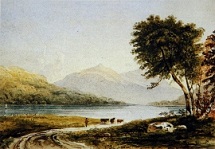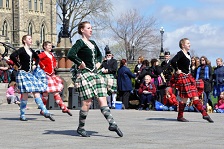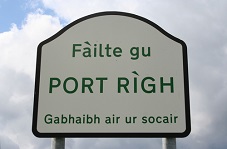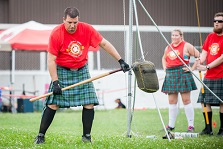Scottish Theater 101
Scottish Theater 101
While Scottish theater does not have the same kind of history like Greek or Roman theater, it is still an history that is quite interesting. In this article, we will shed a light on this history and also have a look at some people who played an important role for Scottish theater.
Scottish theater in the Middle Ages
Unfortunately, the plays that surely must have existed during the early Middle Ages have not made it to our modern time. Historians can only assume that the Scots did have their own type of Mummer's plays and passion plays. However, we do know that the Scots did something called “guising” during Halloween – and that is where the tradition of dressing up for Halloween originated from.
The Church of Scotland did not like theater very much: In 1555, folk plays were made illegal, and in 1575 liturgical plays were also banned. This might be a consequence of anti-catholic comedies and tragedies that were written around 1540 by a poet called James Wedderburn. The poor man was later forced to flee and become an exile – but that was just the way the church worked all over the world in those olden days.
Even though there were plays during the later Middle Ages, it took a bit longer until professional theater schools started to emerge. Many playwrights from Scotland went to England to become better at their art.
18th and 19th century
Scottish theaters did not fare well, many were forced to close soon after opening, and support for playwrights and theaters was barely there. The plays performed in Scotland were often by visiting groups from England.
It was only in the later 18th century when more Scottish plays were performed, and in the 19th century theater in Scotland was something quite normal, however, many plays that were performed came from other countries.
Modern Scottish theater
Scottish theater in the 21st century is a very colorful mix, but you can see that the classic Greek plays are very popular (either in the original, translated versions or in a modern adaptation). There are many theaters in Scotland, and the variety of different styles of plays makes sure that different types of audiences will be able to find something for their taste.
Some of the modern, Scottish plays you might want to watch at some stage are:
- “Knives in Hens” by David Harrower (which is about a rural woman murdering her husband)
- “Black Watch” by Gregory Burke (which turned out to be a very popular production nationally and internationally)
- “The Cheviot, the stag, and the black, black oil” by John McGrath (a very interesting play which is about the history of the Highlands)
- “Bondagers” by Sue Glover (very lyrical, and bondagers might not be what you think)
- “Mary Queen of Scots got her head chopped off” by Liz Lochhead (the title is quite self-explanatory, but the delivery might surprise you)
- “The Steamie” by Tony Roper (it basically is about four women talking about things in a local wash house – it is more entertaining than you might believe)
Some important people from the past of Scottish theater
William Alexander, 1st Earl of Stirling
The author of Aurora, Doomes-Day (epic poem about the end of the world), and the series of dramas now know as The Monarchick Tragedies lived from round 1567 (no date recorded) to 1640. He was also important because he played a vital role for the Scottish colonization of Nova Scotia, amongst others.
Sir David Lindsay
Sir David Lindsay wrote “A Satire of the Three Estates” in Middle Scots. It is indeed a satire and focused on the tensions between the three estates that were part of the Scottish parliament (clergy, lords, and burgh representatives). A modern English version is still played in modern theaters.
Alan Ramsay
Alan Ramsay lived from 1686 to 1758, and wrote the play “The Gentle Shepherd” (a pastoral comedy). There is a statue of Alan Ramsay in Edinburgh.
Joanna Baillie
Born on September 11th 1762, Joanna Baillie used her life that ended on February 23rd, 1851 to create a body of work that would turn her into a very well known person during and after her life. She wrote a variety of plays like “Plays on the Passions” (which is a series of different plays), De Monfort”, and “The Family Legend”.
Catharine Trotter Cockburn
This Scottish women lived from 1674 (though the date cannot be confirmed) to 1749, and produced a number of plays, among them “Agnes de Castro”, Fatal Friendship”, and “Love at a Loss”. Apart from producing plays, she did also write quite a few other texts.


_(2).jpg)








